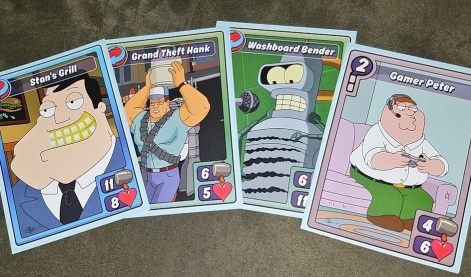Modern Times Group has closed a deal to acquire games publisher Kongregate for $55 million.
This brings the AdVenture Capitalist and Animation Throwdown publisher's relationship with former owner GameStop to an end, with the company now gearing up to enter a new phase.
Kongregate's intention is to move into new gaming platforms and make a few acquisitions of its own to diversify into game development as well as publishing.
So to learn more about what this acquisition means for Kongregate, its strategy and future, PocketGamer.biz reached out the CEO Emily Greer.
PocketGamer.biz: When did your contact begin with MTG and how did this acquisition deal come about?
Emily Greer: We first started talking a little over a year ago as MTG started exploring the third-party publishing space.
They liked our abilities there, the way we combined it with a broad platform for distribution, and our strong reputation with game developers.
We really liked their vision for their portfolio and the way that it aligned with what we’re looking to do.
A deal made sense for GameStop as well, as it allows them to focus more clearly on their retail and ecommerce strategy across a lot of categories, and sets up additional potential cooperation between MTG and GameStop.
What practical changes to Kongregate and the way you work will follow the acquisition?
The most immediate practical change is that we’ll be spinning out independently, with our own accounting and HR.
We’ll be deepening our investment in several areas, from marketing to platform engineering.Emily Greer
That may not sound exciting, but it allows us more flexibility than was possible within a huge retailer.
More importantly, we’ll be deepening our investment in several areas, from marketing/marketing tech to platform engineering.
We’re also going to be investing in first-party development and potential acquisitions of our own within the games space.
How do you reflect upon your time as a wholly-owned subsidiary of GameStop? Is the strategy now different?
GameStop has been a great home for us. We grew revenue every single year of the seven years we’ve been a part of GameStop, and they have given us a lot of freedom over the years to pursue strategic opportunities.
The most significant was funding the launch of our mobile publishing program back in 2013, which has been a huge success with games like AdVenture Capitalist, Animation Throwdown and many more.
Over seven years, the strategy for any company is going to shift somewhat since both the world and the companies change.
GameStop has really focused in on retail and e-commerce as their area of expertise, and has had a lot of success diversifying in that arena: the tech brands business they’ve built running AT&T stores is doing great, as is their collectibles business with the acquisition of ThinkGeek.

On our side, we’ve expanded our focus to include game development along with third-party publishing and our Kongregate.com platform, and we think that all three of those work together to make each part stronger.
MTG is excited about that strategy, which fits their vision very closely. This deal allows everyone to increase their investment in their core strategy.
This comes shortly after the news that you've surpassed 100 million downloads across your mobile game portfolio. What are your next targets and how will MTG help you achieve these?
Our long-term goal is to make Kongregate a household name in gaming, known for excellence and integrity, and we’re still discussing internally what the specific goals along the way are.
MTG will help us extend our relationships and presence in Europe.Emily Greer
MTG can support in a lot of ways: capital to fund investments and more aggressive user acquisition; potential partnerships with other portfolio companies like Innogames and ESL; and potential exposure through their various media channels.
They’ll also help us extend our relationships and presence in Europe.
Why is Kongregate now taking the decision to develop its own games? Will this take place in existing offices or will you be opening new studios?
We work so closely with many wonderful developers, both through our platform and publishing divisions, that making some of those relationships more permanent is a natural next step.
We made our first acquisition last year, with the San Diego studio Ultrabit, and that’s gone well.
We’ve been able to both keep them feeling independent while also having both parties benefit from the closer relationship, and we want to expand that.
As a platform and publisher, we have a high level of familiarity with a lot of developers - more than 30,000 have worked with us in one capacity or another - and that gives us greater insight and connection with developers as we look at acquisitions, and the ability to really help developers succeed post-acquisition.
We’re not currently planning on setting up any studios from scratch.
Will partnerships with smaller studios remain a key part of what Kongregate does?
Absolutely. One of the things that makes me happiest is when we help small teams make it big, like the recent launch of Bit Heroes.
We founded Kongregate to help developers, and the move to add first-party is just another element there.Emily Greer
That game was made by a three-person team as a side project from their triple-A jobs. They were able to go full-time after the Kongregate.com launch and our mobile publishing deal.
They now have a substantial business on mobile and a 5.0 rating on iOS.
We founded Kongregate with a mission to help game developers of all sizes, and the move to add first-party is just another element there.
We’ll be increasing investments in both platform and third-party publishing (check out our jobs page, for example) and expanding the platforms and types of games and developers we support, including Steam, consoles and paid games.
What do you see as being the key role of a publisher in today's mobile market?
Succeeding on mobile is very difficult, and it’s even more difficult for small developers releasing games annually to build up the knowhow and systems to break through the noise.
It’s often hard for them to even know what they need to know. Our role is to help developers navigate the unknown and share our experience from publishing dozens of games.
What that means varies from game to game and developer to developer: sometimes we’re focusing more on monetisation and analytics, sometimes it’s mostly about marketing the game, sometimes it’s helping to polish art and UI, sometimes those and more.
What can we expect to see from Kongregate in the rest of 2017 and beyond?
More growth, more platforms and a broader presence generally.
Greater investments, both internally and externally. Continuing to help developers of all stripes find success, and bring great, innovative games to players - wherever they play.























